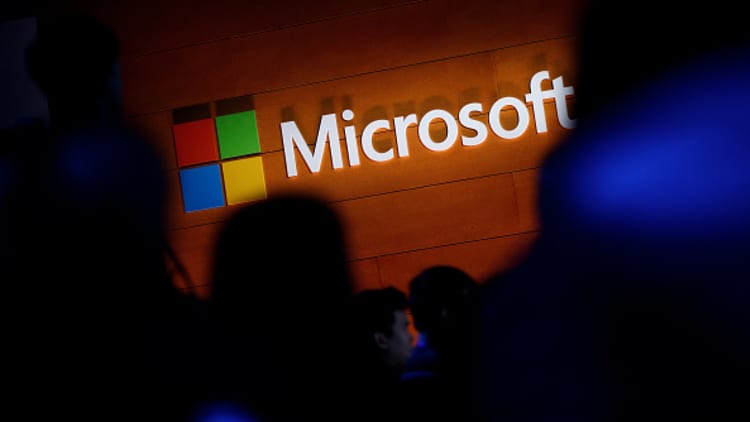Microsoft, which once called Linux a "cancer," is now embracing the open-source operating system and using it to secure internet-connected devices.
At an event on Monday, Microsoft introduced Azure Sphere, a package of products including a new design for chips that will be packed into small gadgets deployed around the world, and said it's using Linux to secure these chips. Many products containing small computers are currently not connected to the web, representing a big opportunity for technology companies.
The announcement marks Microsoft's latest embrace of a former rival technology, as the company relies less on its legacy Windows franchise and more on providing powerful cloud-connected services.
"Of course we are a Windows company, but what we've recognized is the best solution for a computer of this size in a toy is not a full version of Windows," Brad Smith, Microsoft's president and chief legal officer, said at the event in San Francisco. "It is what we are creating here."
With the introduction of the Azure Sphere OS, Microsoft will be distributing a custom Linux kernel for the first time, Smith said. The technologies will be free of royalties and licenses.
Chipmaker Mediatek said in a statement that it's sampling compatible Azure Sphere-certified chips with some customers. The chips will be more widely available in the third quarter, and more chip partners will be coming over time.

Last month, Microsoft announced a major reorganization that led to a leader of Microsoft's Windows organization losing a seat on the company's senior leadership team, with employees of the group getting split across other teams.
In recent years, Microsoft has been moving towards Linux and deemphasizing Windows. Microsoft joined the Linux Foundation in 2016. The company changed the name of its public cloud from Windows Azure to Microsoft Azure, as many users now run Linux on it. Microsoft has also introduced a Linux version of its SQL Server database software, and it has worked on an operating system for switches in its data centers that on Linux.
That's a much different relationship than the company had with Linux in 2001, when Steve Ballmer, who was Microsoft's CEO at the time, said called it a "cancer that attaches itself in an intellectual property sense to everything it touches."
The Azure Sphere cloud service will enable the connections from one small device to another, as well as connections from a device to various cloud services, all the while picking up on security issues. It will join a wide portfolio of other computing tools available from Microsoft's data centers around the world.
At the same time, Microsoft is acknowledging that it's not the only public cloud infrastructure provider. The chips and operating system will be able to connect with Amazon Web Services, or other clouds from the likes of Google, Alibaba, Oracle or IBM, Smith said.
"I do believe that it enables us to make an important contribution to what the world needs from us, and that is to work with everyone to put security first and help to create a safer world," he said.
WATCH: Major reorganization at Microsoft



